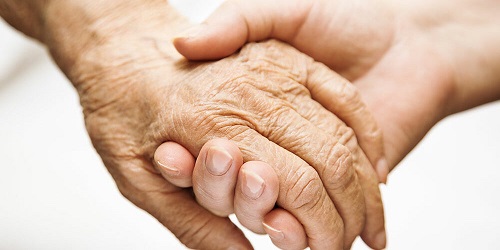You will have to assist your parents or other loved ones choose where they should live as they age. Among the many varieties of housing for seniors, assisted living is one of the most popular senior housing activities for people who require assistance with everyday tasks such as cooking, bathing, and dressing but who don’t necessarily require skilled nursing or specialized dementia care.
Here is some information that may be helpful to evaluate the situation if you feel your friend or relative may no longer be secure living alone at home. So when is the right time to begin thinking about assisted living?
It can be challenging for everyone concerned to move a loved one into assisted living, but often the hardest part is deciding when the transition should be made. The decision-making process may be sped up by obvious warning signs like a broken hip or a fast downturn in health, but most of the time, there isn’t just one. There will be signs along the way, though, that may let you know a change in living circumstances may be necessary:
So, When Is It Time for Assisted Living? Find out if it’s time to consider assisted living by reading the following 11 signs.
1. Chronic Health Problems
As a person gets older, chronic health concerns will only become worse. They can also damage the immune system, making a person more susceptible to getting sick more frequently and for a longer period of time.
It may be time to choose a long-term care facility with the staff and resources to handle your loved one’s continuous medical requirements if they are in pain and require round-the-clock care.
2. Becoming Aggressive
It is a sad reality that some dementia patients will become more aggressive as the disease worsens. This is simply a sad result of the sickness, not a comment on how they are being cared for. Most people find it challenging to care for someone abusive physically or verbally. Aggressive people require a safe environment and skilled staff who are familiar with handling these circumstances.
3. Recent Falls
The requirement for assisted living is often indicated by a pattern of frequent falls. Seniors often have mobility challenges, and their home is full of potential tripping hazards. If your loved one recently fell and you are worried that they won’t be able to get up or ask for help, it may be time to consider the advantages of assisted living where they can be observed.
4. Forgetting to take medicine
Have you observed that your loved one is not taking their medication as prescribed? Ask them why if that’s the case. Do they forget to take it, or is there a financial issue? A medicare supplement insurance plan might be useful if they are concerned about the price of prescription drugs. Assisted living can be helpful if they forget to take their prescription. The staff may make sure they take the prescribed medication.
5. Unable to Handle Daily Life Activities
Even simple activities can often feel overwhelming. It might be time for a change if a family member has trouble with daily activities cooking, cleaning, or other tasks. A key task that they frequently struggle with first is yard work. Don’t make them suffer too much daily effort. Choose a place where they can relax and enjoy their final years knowing that all of those responsibilities have been completed.
6. Isolation and Sadness
Seniors often find it challenging to keep driving. They consequently spend less time outside, which makes them feel lonely and isolated. If your loved one is exhibiting depressive symptoms and feels isolated, it might be time to start a discussion as to whether assisted living is right for them. The facilities provide a variety of chances for social interaction and activities. It can be exactly what they require!
7. Poor Eating Habits
A person’s eating habits will probably decline if they are unable to prepare meals. Maintaining both physical and mental wellness requires proper nourishment. They will be able to get regular, healthy foods that are prepared with their specific needs in mind once they move into a long-term care facility.
8. Poor Hygiene
Personal hygiene is one of the first things to suffer for someone who is unwell or who has dementia. When they do take a bath, it could not be as good as it should be because they don’t bathe as frequently. When it becomes noticeable that someone can no longer take care of their basic requirements, it is time to think about moving into an assisted living facility.
9. Caregiver Stress
Perhaps you are doing all the work and you are unable to continue. Most people who choose to take care of their family members independently do so out of love and goodwill. Unfortunately, a lot of people are not adequately ready for the demanding difficulties, both physically and mentally. There is no shame in acknowledging that you did the best you could and that a new direction is necessary.
10. Sundowning
A person with dementia who has sundowner’s syndrome becomes more irritable at the end of the day. They have burned all of their mental capacity for the day. This may be the case if the evenings are particularly stressful. Additionally, It indicates that they are losing the ability to live alone.
11. Wandering Off or leaving the path
If a loved one lives alone and you are concerned about their mental health, you probably worry that they will become lost. That is a legitimate worry, and it occurs frequently. Maybe they get lost even though they believe they know where they are going. Or maybe they are simply eager to leave the house. In either case, if this has developed into a problem or you fear it might be, don’t wait for something unpleasant to occur. Start the discussion right now.
Bottom Line: 11 Signs It Might Be Time For Assisted Living- The Right Choice
It can be difficult to accept that a loved one requires full-time care. It might also be challenging to acknowledge that you are unable to provide them with the care they need. Talk with your elderly loved one about their housing options if you are worried about their safety, health, or happiness. Involve their doctor and a financial advisor so that you both are aware of all the senior living options that are accessible to them.
Use respite care facilities or home health care services to give yourself a break if your loved one lives with you and needs full-time assistance. To find out about the senior living resources in your region, speak with your local Agency on Aging or the Department of Human Services in your state.
Residents at assisted living facilities can benefit in various ways, both mentally and physically. There are several options available to you if you decide an assisted living facility is the best option for your loved one.





